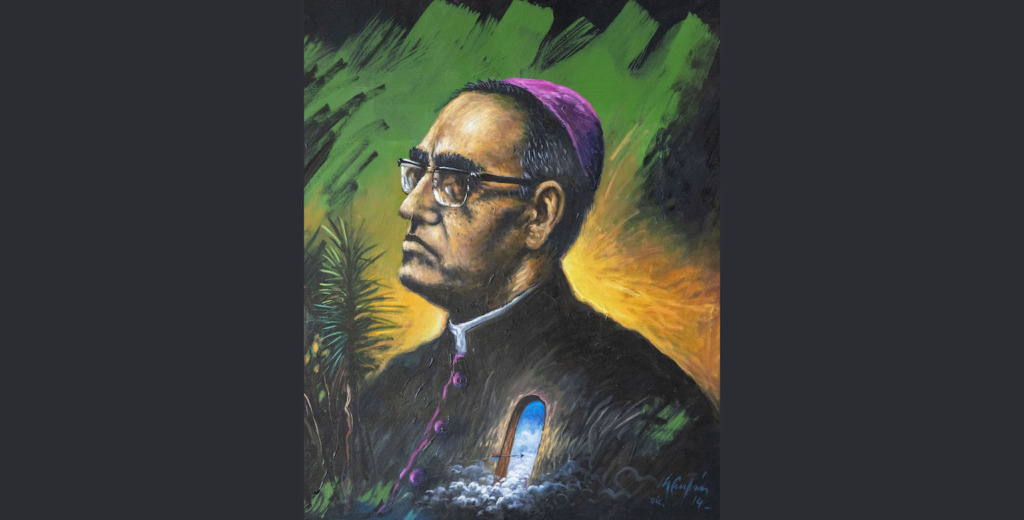WASHINGTON — Auxiliary Bishop Mario E. Dorsonville of Washington asked students from The Catholic University of America at a bilingual Mass March 23 for the feast of St. Oscar Romero to pray for the Salvadoran saint’s intercession in countries at war.
St. Romero was martyred March 24, 1980, while celebrating Mass in a chapel at a hospital for cancer patients in San Salvador. The day before he was shot to death, he had pleaded with soldiers to stop the violence, particularly against civilians, as war brewed in the Central American country.
“I want to make a special appeal to soldiers, national guardsmen, and policemen: Each of you is one of us. The peasants you kill are your own brothers and sisters. When you hear a man telling you to kill, remember God’s words, ‘Thou shalt not kill,'” St. Romero said in his next to last homily.
“No soldier is obliged to obey a law contrary to the law of God,” he continued. “In the name of God, in the name of our tormented people, I beseech you, I implore you; in the name of God, I command you to stop the repression.”
A day after saying those words, he would become one of more than 70,000 civilians killed during 12 years of war.
Though the circumstances were different, his prophetic words had a message that is apt for the world right now as Russians attack Ukrainians, Bishop Dorsonville said: Do not kill.
“What would Oscar Romero say if he were alive today?” Bishop Dorsonville asked.
He wouldn’t change his words much, he said, because he followed and championed the Gospel message that goes against the kind of killing taking place on Ukrainian soil, Bishop Dorsonville said.
“That’s why the saint was not popular,” he added. “It would be simple to say let’s pray, but prayer is only important if there’s an action to follow.”
And St. Romero’s actions were to love and to speak up for the vulnerable, even if it meant risking his life, Bishop Dorsonville said.
“The legacy of Oscar Romero is huge … there is a fountain of hope and love and sacrifice,” he said, adding that the prelate’s last speech against war was “a radical speech, full of love for the human person.”
He has been an example for many in the Catholic Church, Bishop Dorsonville said.
One of them is Bishop Ronald A. Hicks of Joliet, Illinois, who, in a YouTube video in English and Spanish, honored St. Romero on his feast day March 24, saying he holds St. Oscar Romero “in my heart.”
“He’s become one of my greatest heroes,” Bishop Hicks said, because he is the example of someone who lived completely devoted to God, devoted to Jesus.
“His life shows us that it is never too late to become the person God intended you to be,” he said, recalling what he has read about St. Romero — that he was, at first, a quiet, bookish priest and “the last person you’d expect to become a martyr for his faith.”
After seeing Salvadorans, “his own people, his own priests, nuns, laypeople, Catholics killed unjustly during the country’s civil war, then all of a sudden, through the Holy Spirit, he spoke out against oppression injustice and violence,” Bishop Hicks said in the video. “But he did so with a great love of God and he was murdered, he was murdered for doing so. He was assassinated in the middle of celebrating Mass. He gave his life to God and to the people of God.”

